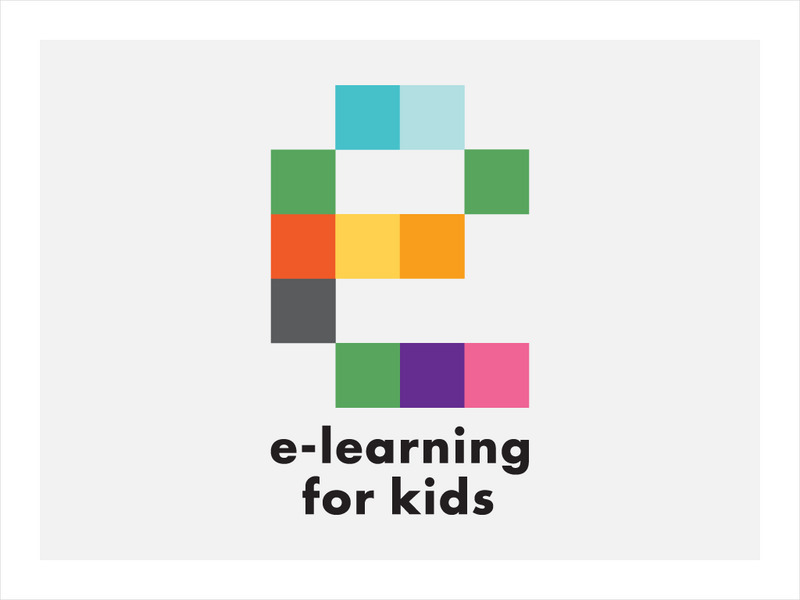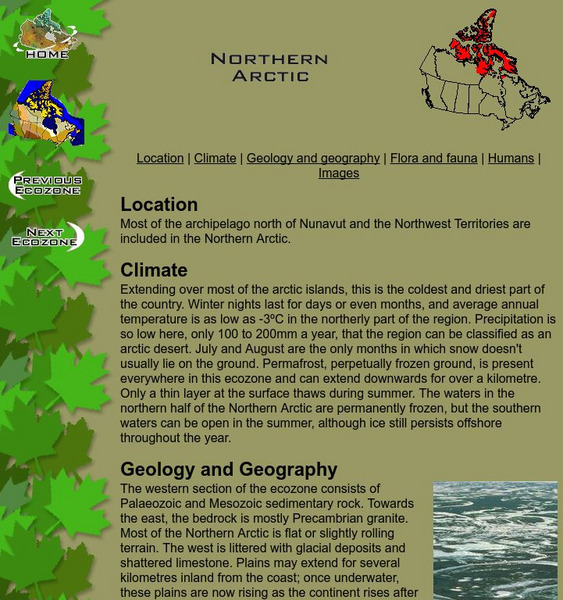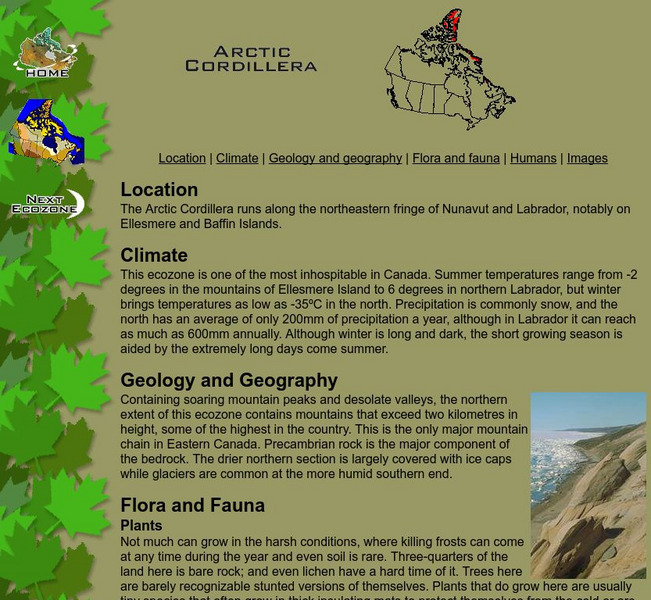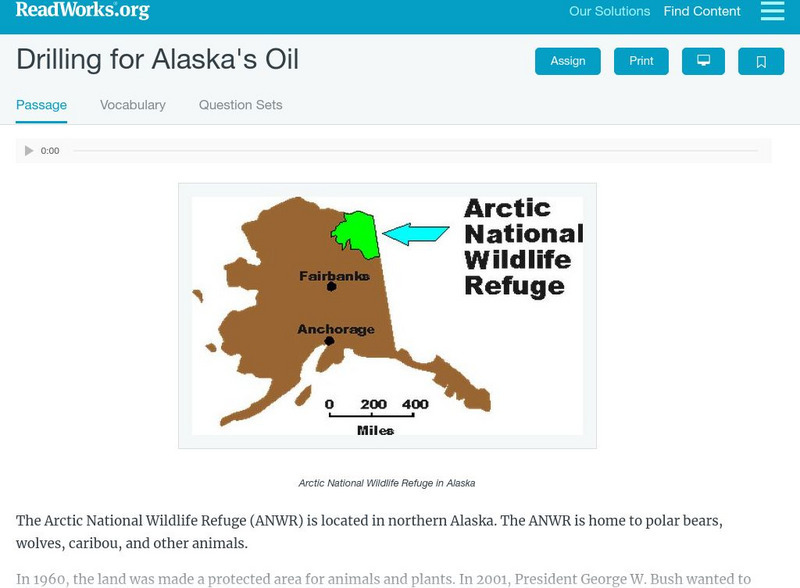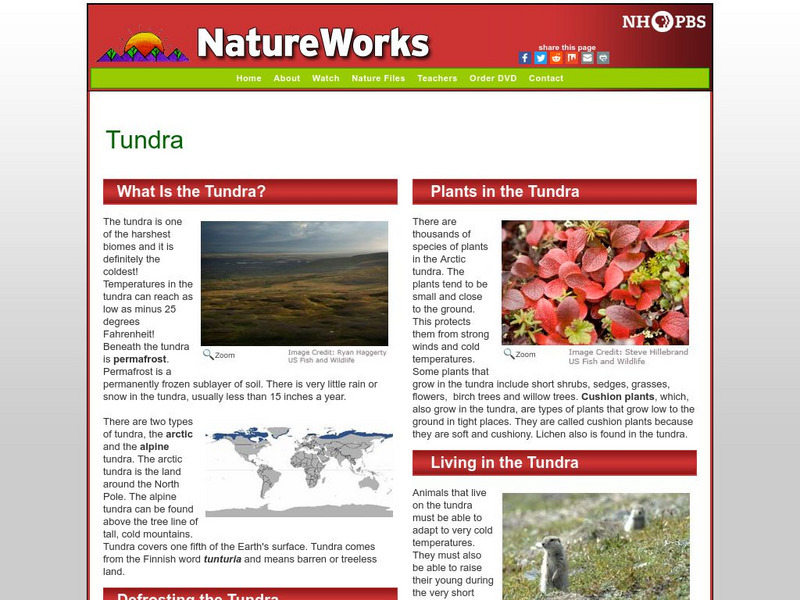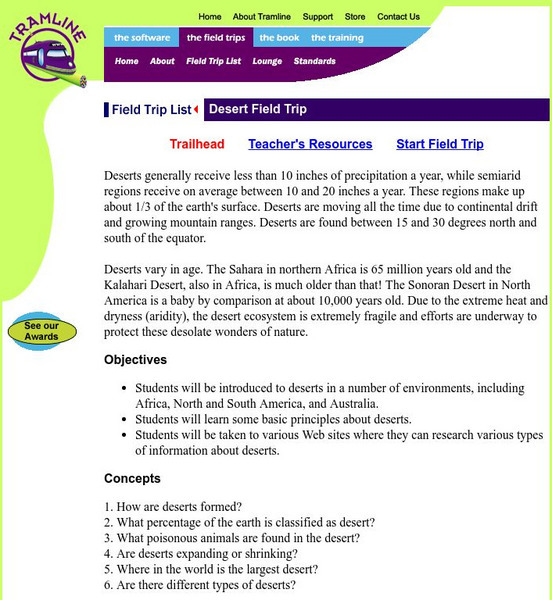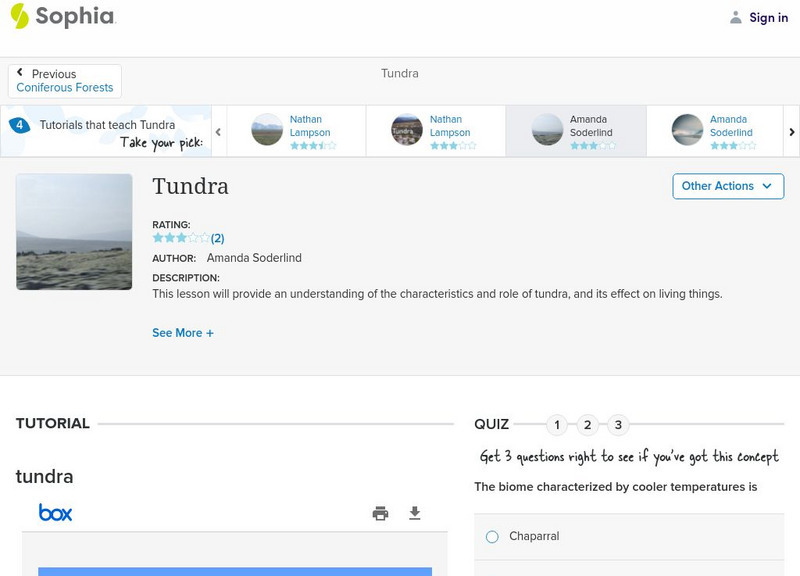Hi, what do you want to do?
Science Struck
Science Struck: Tundra Biome: Info About Its Plants and Animals
Describes the features and characteristics of the tundra biome, the different types, where they are found, their climate and seasonal changes, and their plants and animals.
The Wild Classroom
The Wild Classroom: Biomes of the World: Arctic Tundra Biome
Learn all about the Arctic Tundra Biome. This site discusses where it is found, temperatures, precipitation, soil, plants and animals. It also has a few videos to view.
E-learning for Kids
E Learning for Kids: Science: Nova Zembla: Why Do We Need Plants?
This module explores how plants help animals survive. Bobby is a scientist on Antarctica. He discovers many amazing uses of plants. Join him and help him learn.
McGill University
Mc Gill University: Canadian Biodiversity: Ecozones: Northern Arctic
A brief, concise description of the chain of islands that form most of the archipelago north of Nunavut and the Northwest Territories. It includes an excellent collection of images of the landscape as well as those of animals and birds...
Other
Polar Continental Shelf Project for Kids!
Visit this resource to learn about the geography, wild life, plants and people of Polar Continental Shelf in Canada's Arctic. Students can take a quiz to see how much they have learned.
Center for Educational Technologies
Wheeling Jesuit University: Arctic Tundra Biome
Provides text and pictures on the arctic tundra, its animals, plants, and their adaptations.
McGill University
Mc Gill University: Canadian Biodiversity: Ecozones: Southern Arctic
A brief, concise description of the Southern Arctic ecozone which extends across the northern edge of the continental Northwest Territories and Quebec. It includes a collection of images of the landscape as well as those of animals and...
McGill University
Mc Gill University: Canadian Biodiversity: Ecozones: Arctic Cordillera
A concise description of the Arctic Cordillera that runs along the northeastern fringe of Nunavut and Labrador. It includes an excellent collection of images of the landscape as well as those of animals and birds native to the location....
Woods Hole Oceanographic Institution
Polar Discovery: Compare the Poles
A detailed comparison of many aspects of the two polar regions. Includes physical features, seasons, weather, types of ice, plants and animals, human population, and climate change.
McGill University
Mc Gill University: Canadian Biodiversity: Ecozones: Arctic Archipelago Marine
The Arctic Archipelago Marine ecozone includes Hudson Bay and most of the water surrounding the islands of Nunavut and the Northwest Territories. This is a brief, concise description of the location, climate, geology, and flora and...
Read Works
Read Works: Drilling for Alaska
[Free Registration/Login Required] Students read about drilling for oil in Alaska. A question sheet is available to help students build skills in comparing and contrasting.
Houghton Mifflin Harcourt
Harcourt: School Publishers: Exploring Ecosystems
Compare and contrast three very different ecosystems - the Sonoran Desert in Arizona, the Florida Everglades, and the Arctic Coastal Plain in Alaska. Learn what makes each of them unique, and about the adaptations plants and animals had...
McGill University
Mc Gill University: Canadian Biodiversity: Ecozones: Taiga Shield
This ecozone stretches eastward from the Taiga Plains to just south of the Southern Arctic. This brief, concise description includes a collection of images of the animals and birds native to the location. Many of the images include...
PBS
Nh Pbs: Nature Works: Tundra
Can you name the two types of tundra? Find the answer to this question and many more when you explore this educational resource. The content of this site includes a look at this biome's characteristics, plant life, animal life and more....
Other
Natural Resources Canada: Polar Continental Shelf Project
This resource presents an overview of the Arctic - its animals, plants, people and geography.
Curated OER
Bureau of Land Management: Alaska's Cold Desert
Learn about the Arctic tundra biome of Alaska. A discussion of its characteristics, and the animals and the plants that live there.
Curated OER
National Park Service: Bering Land Bridge National Preserve
Hands-on curriculum unit in which students will explore the Bering Land Bridge National Preserve and learn about the past and present cultures of this arctic landscape. Students will also discover the plants, animals, and geology of this...
The Wild Classroom
The Wild Classroom: Biomes of the World: Polar Ice Caps Biome
Learn about the polar ice cap ecosystem. Find out about plants, animals, adaptations, and conservation efforts.
Tramline
A Desert Virtual Field Trip
Travel with your students on a virtual field trip and explore the deserts of the world! This is site is interactive and informative.
The Franklin Institute
Missouri Botanical Garden: Ocean Facts
Click on all the links to find out many interesting facts about the ocean. Why is the ocean blue? Why is it salty? Where do most of the animals and plants live? Which ocean is the biggest? The deepest? How much of the Earth is covered by...
Sophia Learning
Sophia: Tundra
Find out the basics of the Tundra biome, including the climate, location, and characteristic animals and plants living there.







